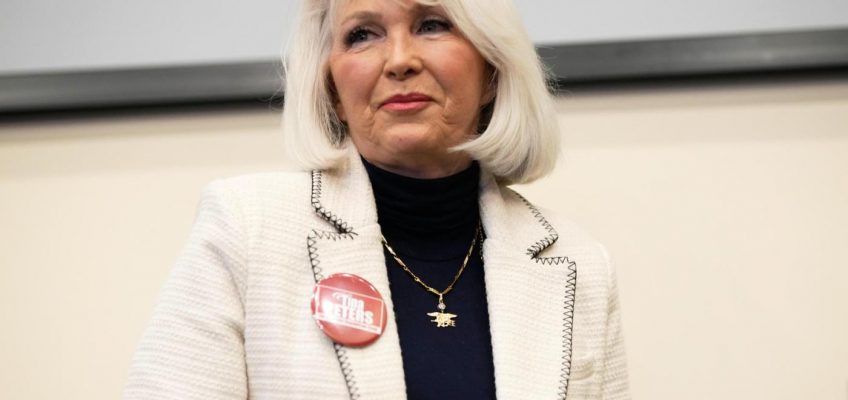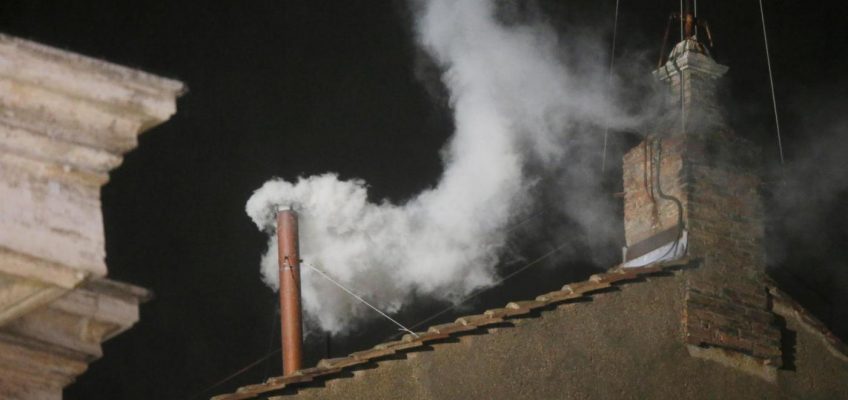By COLLEEN SLEVIN, Associated Press
DENVER (AP) — Colorado officials say President Donald Trump’s administration appears to be wielding its “political power” to give unprecedented help to a former county election clerk who was convicted of allowing Trump supporters to access election equipment after his 2020 defeat.
The U.S. Justice Department is trying to insert itself into the case of former election clerk Tina Peters, who wants to be released from prison while she appeals her conviction. A hearing is scheduled for Tuesday in federal court in Denver.
It’s one of the latest Trump administration moves to reward allies who violated the law on the president’s behalf. Peters’ case is among those the government has said it is reviewing for “abuses of the criminal justice process.”
There have been “reasonable concerns” raised about Peters’ prosecution, wrote acting U.S. Assistant Attorney General Yaakov M. Roth in a court filing last month.
Related Articles
As controversies pile up, Trump allies increasingly turn on one another
Person found on ‘elevated surface’ inside Trump Tower in New York is arrested, police say
Harvard sues Trump administration to stop the freeze of more than $2 billion in grants
FACT FOCUS: Examining RFK Jr.’s claims about measles, autism and diet as head of HHS
Supreme Court appears likely to uphold Obamacare’s preventive care coverage mandate
But Colorado Attorney General Phil Weiser wants Magistrate Judge Scott T. Varholak to block the Justice Department from getting involved. Lawyers from Weiser’s office said the Justice Department has not given any good reason why it should intervene and has just repeated Peters’ arguments.
“Tina Peters was not prosecuted because of any political pressure; she was prosecuted because she broke the law. And just as they did not prosecute her for political reasons, her prosecutors will not accede to any political pressure to give her preferred treatment in sentencing or terms of confinement,” lawyers from Weiser’s office said in a filing.
Varholak denied a request to allow Peters, who is now in a state prison in Denver after serving a jail sentence, to attend Tuesday’s hearing, saying its only purpose was to hear arguments from lawyers.
The lawyers who originally submitted the Justice Department’s statement, including Colorado’s acting U.S. Attorney J. Bishop Grewell, have since stepped down from the case because their office helped the state investigate Peters. They said that while they wanted to avoid any conflict of interest, they stood by the Justice Department’s statement.
Abigail Stout, a Justice Department lawyer in Washington, is now representing the federal government instead.
A state judge sentenced Peters to nine years behind bars in October after rebuking her for being defiant and continuing to press discredited claims about rigged voting machines. She is now trying to get a federal judge to release her while she appeals her conviction.
Peters says Judge Matthew Barrett violated her right to free speech by denying her bond while she appeals because of her outspoken questioning of the voting system. She also argued she should be released from prison while she appeals her conviction because she is protected from being punished for trying to preserve election records, which she says is a federal duty.
Jurors found Peters guilty in August for using someone else’s security badge to give an expert affiliated with My Pillow chief executive Mike Lindell access to the Mesa County election system and deceiving other officials about that person’s identity. Lindell is a prominent promoter of false claims that voting machines were manipulated to steal the election from Trump.
Peters was previously found to be in contempt of court by Barrett after District Attorney Dan Rubenstein accused her of recording a court hearing for a person accused of being a co-conspirator, which she denied.
That conviction was overturned for lack of evidence by the state appeals court in January. Peters says Rubenstein, a Republican, later admitted that he didn’t know if Peters was recording the hearing but still used it as a reason Barrett should sentence her to prison for the voting system breach even though a review found no evidence of a recording.
Previously, Trump pardoned more than a thousand people convicted in the Jan. 6, 2021, attack on the U.S. Capitol. He named an attorney for some of those defendants, Ed Martin, to be acting U.S. attorney in the District of Columbia.
The Department of Justice also moved to drop corruption charges against New York’s Democratic mayor, Eric Adams, saying that they were tainted by “weaponization” and that the administration needed Adams’ cooperation in its immigration enforcement efforts.




